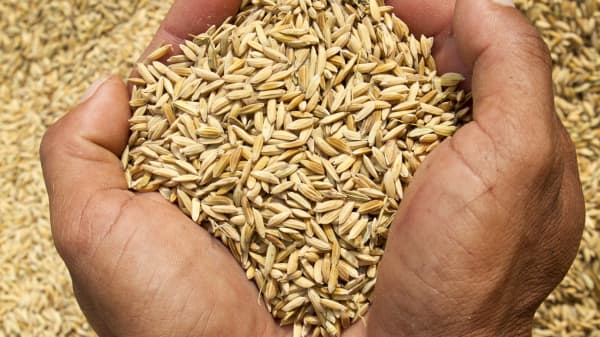A type of pesticide that's a focal point in the controversy over endangered honeybees has turned up in garden-store plants sampled by Friends of the Earth. Other bee experts say the pilot study on neonicotinoids adds an important twist to the plight of the bees—but stress that more rigorous research needs to be done.
The study, co-authored with the Pesticide Research Institute and titled "Gardeners Beware," reported finding traces of neonicotinoid pesticides, or neonics, in seven of 13 plants purchased from garden stores in California's San Francisco Bay area; the Washington, D.C. area; and Minnesota's Twin Cities. The plants included tomatoes, squash, salvia and flowers that would be attractive to pollinators.
"Our investigation is the first to show that so called 'bee-friendly' garden plants contain pesticides that can actually poison bees, with no warning to gardeners," Lisa Archer, director of the Food and Technology Program at Friends of the Earth-US, said in a news release accompanying Wednesday's 34-page report. "Bees are essential to our food system and they are dying at alarming rates. Neonic pesticides are a key part of the problem we can start to fix right now in our own backyards."
(Read more: Mass Honeybee Deaths: Getting Worse, Not Better)
Friends of the Earth kicked off a "BeeAction" campaign to draw attention to the pesticide issue. It said petitions bearing more than 175,000 signatures were delivered to Lowe's, Home Depot, Target and other garden retailers, asking the stores to stop selling neonicotinoids and plants pretreated with the pesticides.
Pesticides and bees
Neonics are nerve-poisoning pesticides that have drawn criticism from environmentalists in the wake of several studies finding that sublethal levels of exposure could nevertheless reduce bee populations. European countries are cutting back on neonics, and in the United States, a federal lawsuit calls on the Environmental Protection Agency to restrict their use. The EPA says it's accelerating its review of neonics.




